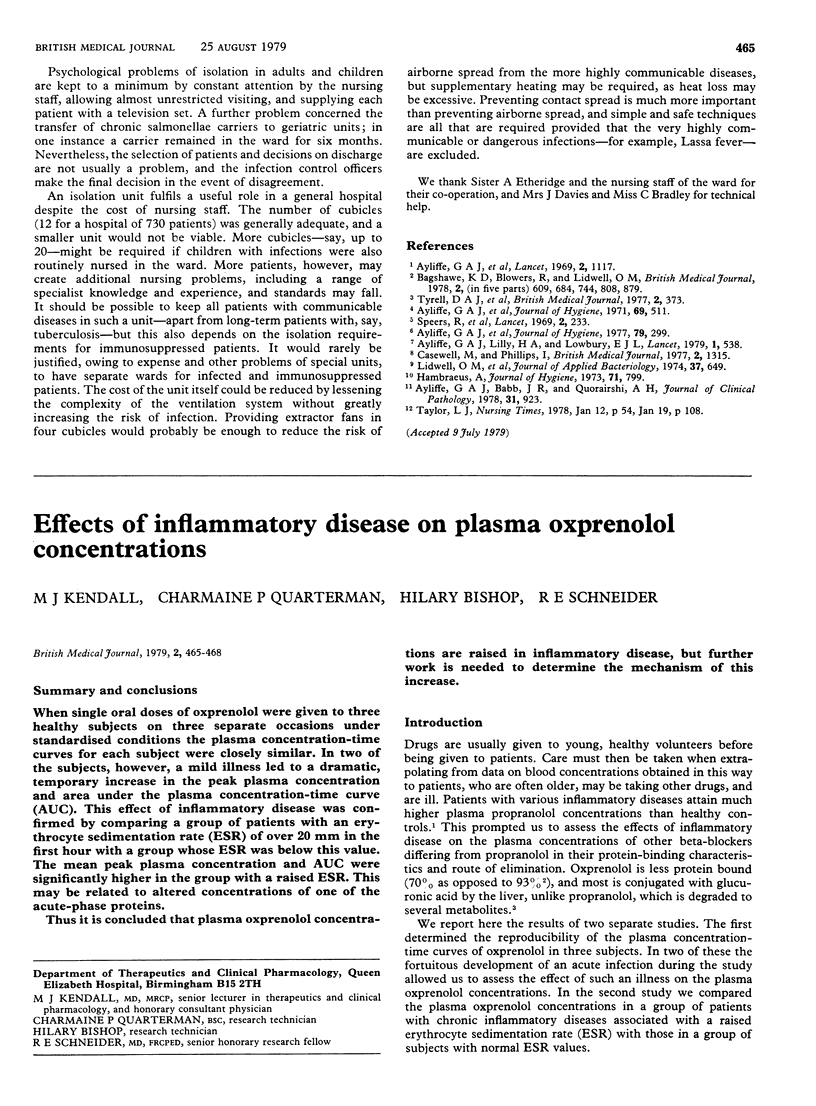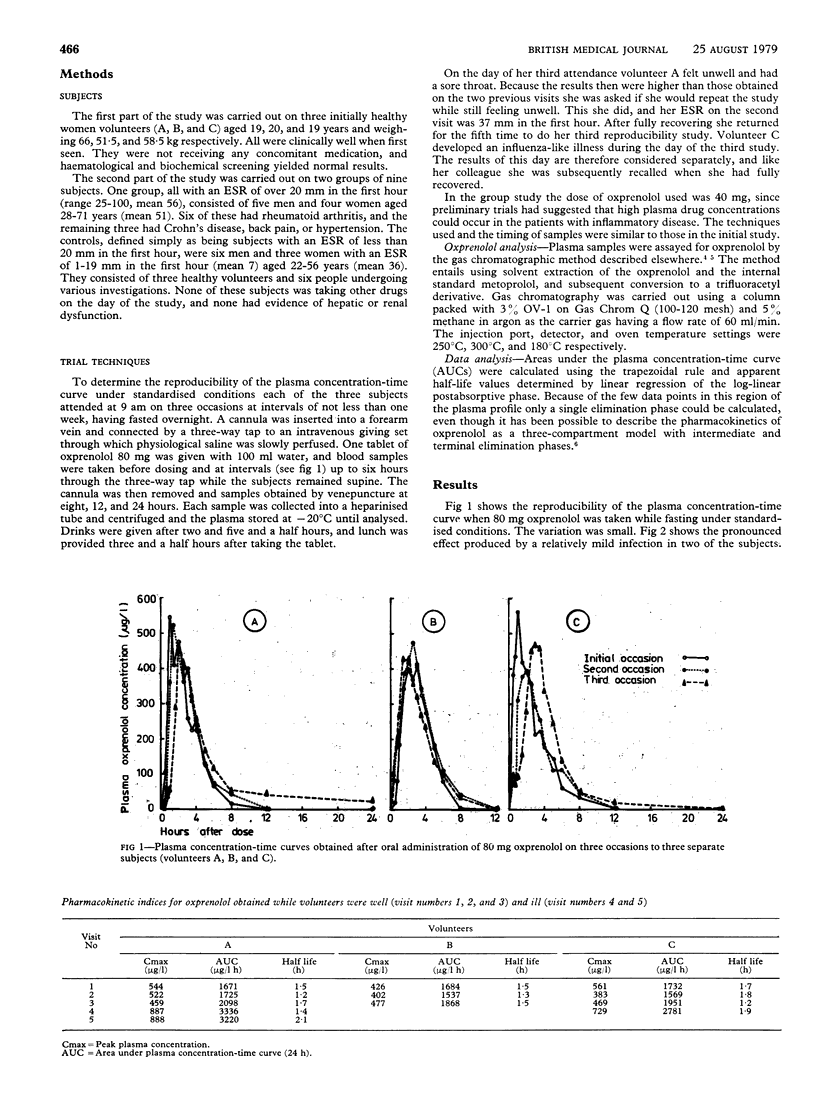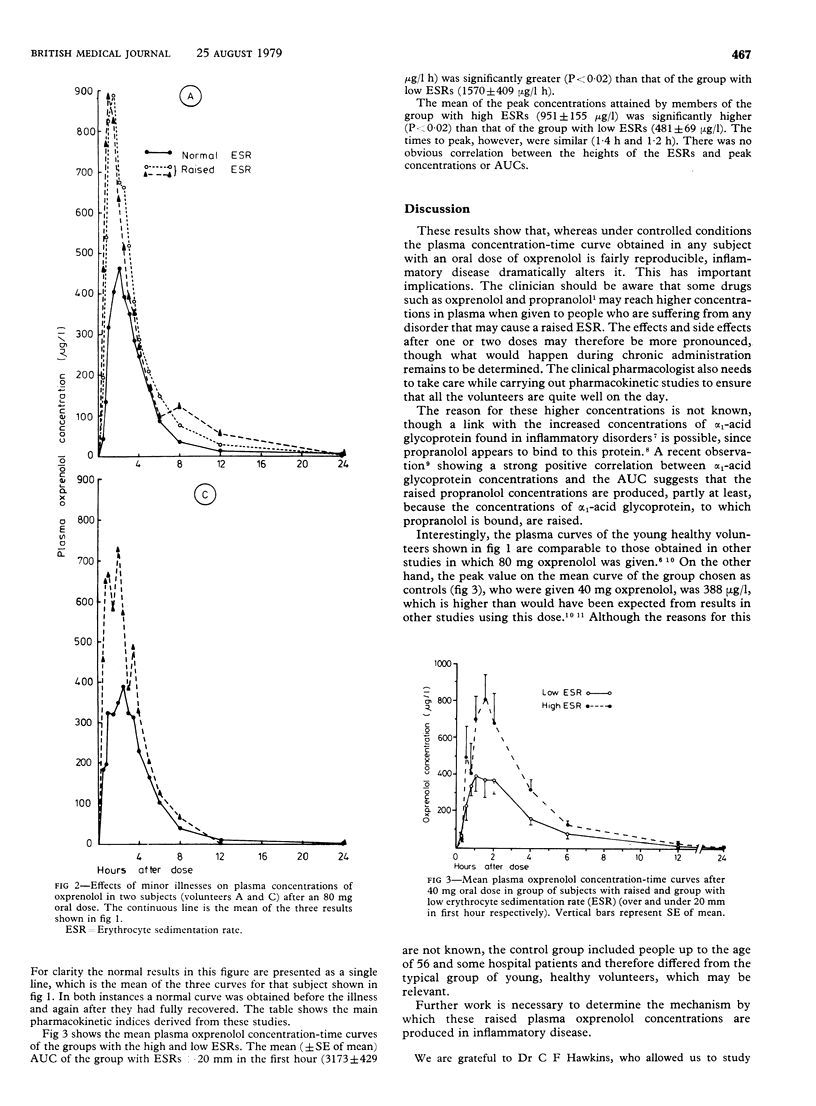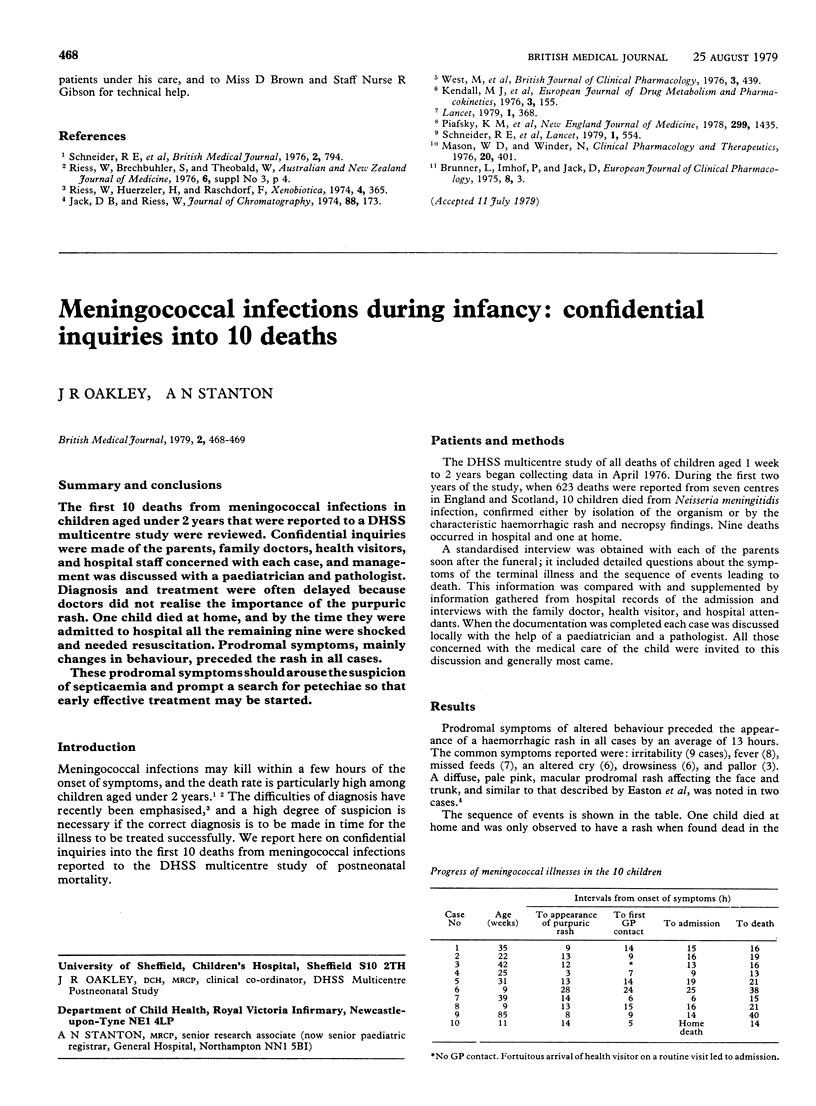Abstract
When single oral doses of oxprenolol were given to three healthy subjects on three separate occasions under standardised conditions the plasma concentration-time curves for each subject were closely similar. In two of the subjects, however, a mild illness led to a dramatic, temporary increase in the peak plasma concentration and area under the plasma concentration-time curve (AUC). This effect of inflammatory disease was confirmed by comparing a group of patients with an erythrocyte sedimentation rate (ESR) of over 20 mm in the first hour with a group whose ESR was below this value. The mean peak plasma concentration and AUC were significantly higher in the group with a raised ESR. This may be related to altered concentrations of one of the acute-phase proteins. Thus it is concluded that plasma oxprenolol concentrations are raised in inflammatory disease, but further work is needed to determine the mechanism of this increase.
Full text
PDF



Selected References
These references are in PubMed. This may not be the complete list of references from this article.
- Brunner L., Imhof P., Jack D. Relation between plasma concentrations and cardiovascular effects of oral oxprenolol in man. Eur J Clin Pharmacol. 1975;8(1):3–9. doi: 10.1007/BF00616408. [DOI] [PubMed] [Google Scholar]
- Mason W. D., Winer N. Pharmacokinetics of oxprenolol in normal subjects. Clin Pharmacol Ther. 1976 Oct;20(4):401–412. doi: 10.1002/cpt1976204401. [DOI] [PubMed] [Google Scholar]
- Piafsky K. M., Borgá O., Odar-Cederlöf I., Johansson C., Sjöqvist F. Increased plasma protein binding of propranolol and chlorpromazine mediated by disease-induced elevations of plasma alpha1 acid glycoprotein. N Engl J Med. 1978 Dec 28;299(26):1435–1439. doi: 10.1056/NEJM197812282992604. [DOI] [PubMed] [Google Scholar]
- Riess W., Huerzeler H., Raschdorf F. The metabolites of oxprenolol (Trasicor) in man. Xenobiotica. 1974 Jun;4(6):365–373. doi: 10.3109/00498257409052112. [DOI] [PubMed] [Google Scholar]
- Schneider R. E., Bishop H., Hawkins C. F., Kitis G. Drug binding to alpha 1-glycoprotein. Lancet. 1979 Mar 10;1(8115):554–554. doi: 10.1016/s0140-6736(79)90974-7. [DOI] [PubMed] [Google Scholar]
- West M. J., Kendall M. J., Mitchard M., Faragher E. B. A comparison of slow release with conventional oxprenolol: plasma concentrations and clinical effects. Br J Clin Pharmacol. 1976 Jun;3(3):439–443. doi: 10.1111/j.1365-2125.1976.tb00619.x. [DOI] [PMC free article] [PubMed] [Google Scholar]


